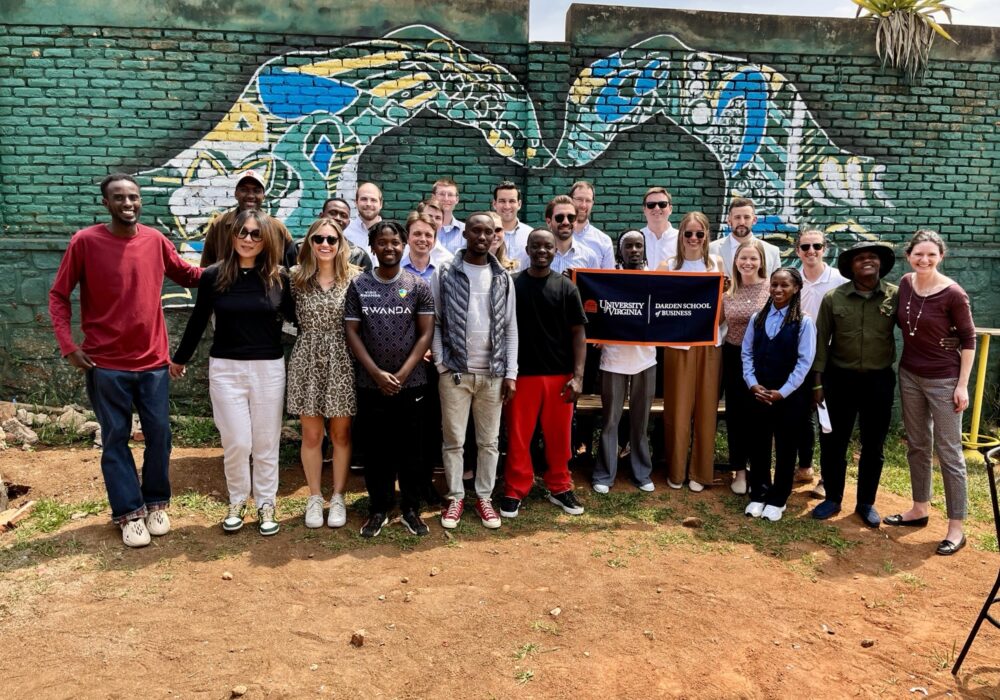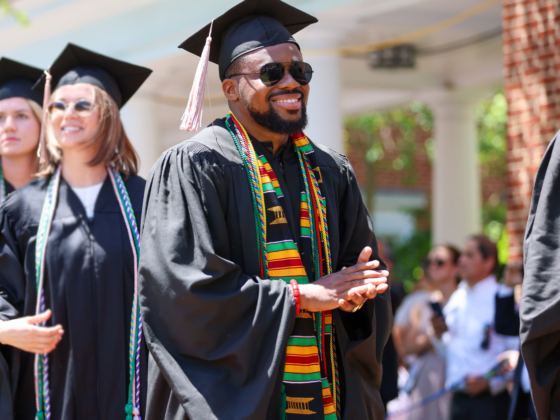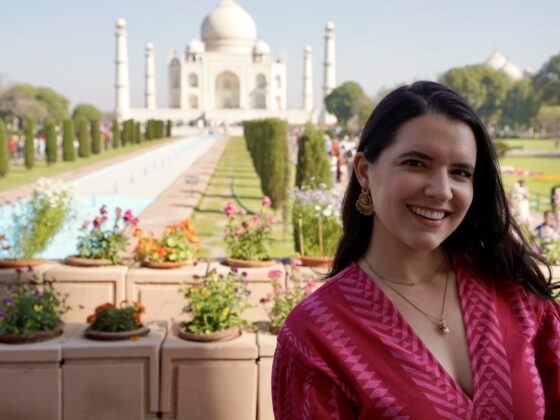Amelie Li (MBA ’25), originally from China, came to Darden to expand her knowledge and accelerate her journey toward becoming a global leader. A lifelong learner, avid world traveler, and tech enthusiast, Amelie is deeply committed to personal and professional growth. Before Darden, she worked as a Strategy and Operations Manager at ByteDance for nearly five years, gaining valuable experience in the tech industry. At Darden, she actively contributes to the leadership boards of both the Tech Club and the Retail and Luxury Club. Beyond Darden’s classroom, Amelie teaches in Darden’s Prison Reentry Education Program and serves as a Research Assistant at the LaCross Institute, focusing on Ethical AI. After graduating, Amelie will continue her career journey in the tech space. In the Spring of 2025, Amelie took her studies to Rwanda on a weeklong Darden Worldwide Course. Now back in the U.S., she shares her experiences abroad and the insights she gained along the way. In her own words . . .
Rwanda, a country defined by its resilience, innovation, and community-driven ethos, provided me with a transformative experience during this Darden Worldwide Course. Through visits to historical sites, interactions with local businesses, and conversations with Rwandan leaders and local kids, I gained profound insights into the country’s unique characteristics, its business environment, and the intersection of social responsibility and economic growth.
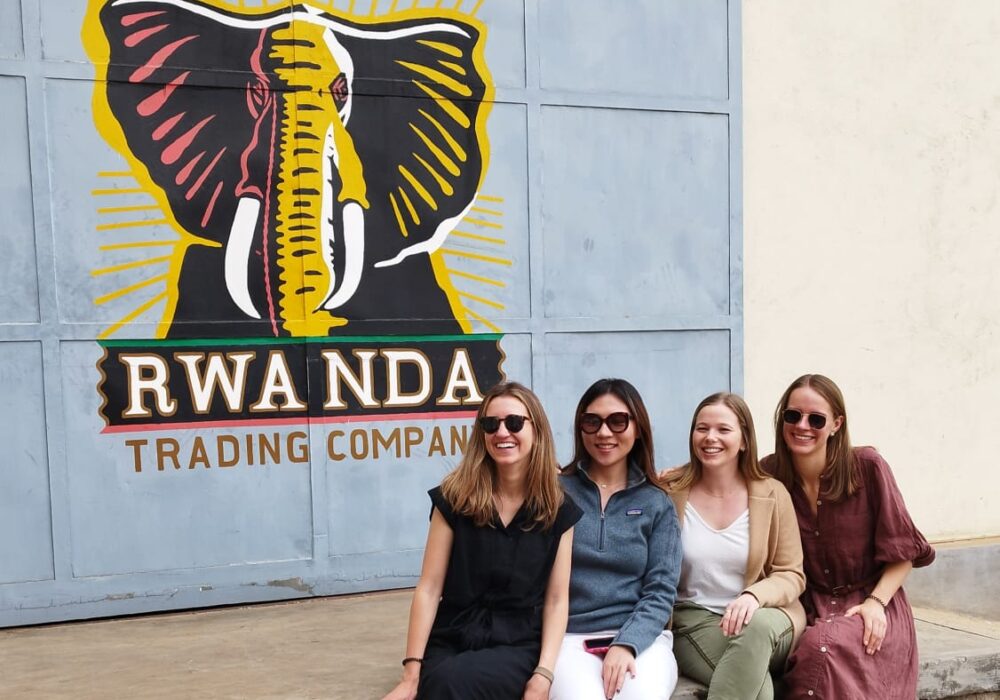
What Is Special About Rwanda?
Rwanda’s ability to confront its past while building a prosperous future is extraordinary. The visit to the Kigali Genocide Memorial was a deeply moving experience that underscored the scale of loss and resilience of the Rwandan people. Walking through exhibits detailing the genocide’s atrocities was both heartbreaking and humbling. The stories of children who were killed—a reminder of stolen dreams—left an indelible mark on me. What struck me most was how Rwanda has chosen forgiveness as a cornerstone for rebuilding its society. The gacaca courts, where perpetrators were tasked with community service to rebuild what they destroyed, exemplify Rwanda’s unique approach to justice and reconciliation. This practice not only fostered healing but also created a sense of shared responsibility for the country’s future.
Contrasting Rwanda’s approach with other nations, including the U.S., made me reflect on how societies deal with historical trauma. In Rwanda, open conversations about the genocide have led to healing and unity. In contrast, many countries shy away from confronting their painful histories, which often perpetuate division. Rwanda’s emphasis on remembrance and recovery offers a model for how societies can turn tragedy into strength.
Another unique aspect of Rwanda is its communal spirit. Practices like Umuganda, where citizens come together monthly for community service, highlight the importance of collective responsibility in fostering social cohesion. This sense of unity is evident not only in daily life but also in the cleanliness and orderliness of Kigali—a stark contrast to many other cities I have visited.
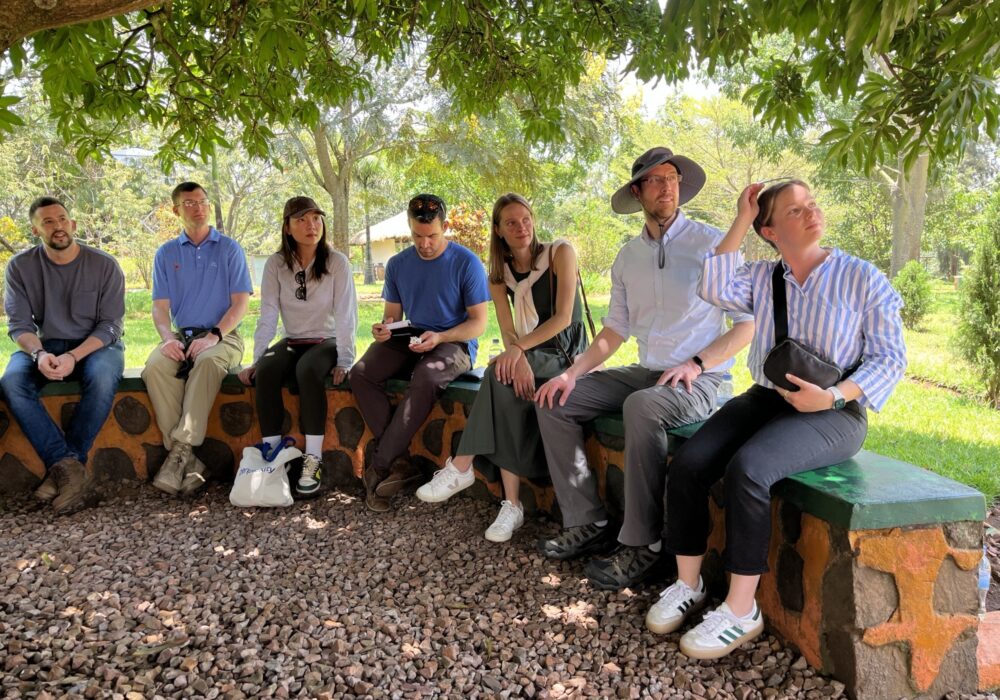
Insights About Business in Rwanda Globally
Rwanda has positioned itself as a beacon of innovation and entrepreneurship in Africa. The Rwanda Development Board exemplifies the country’s proactive approach to economic development. By streamlining business processes and offering incentives like tax exemptions and special economic zones, Rwanda has attracted significant foreign investment. The RDB’s emphasis on accountability, staying together, and thinking big reflects the country’s strategic vision for growth.
One insight that stood out was Rwanda’s focus on quality over quantity in tourism and exports. For example, the Rwanda Trading Company prioritizes producing high-quality coffee rather than competing on volume. Similarly, the government targets high-value tourism experiences—such as gorilla trekking. This strategy aligns with Rwanda’s broader vision for sustainable development while preserving its natural resources.
Rwanda’s landlocked geography presents unique challenges but also fosters innovative solutions. Companies like Zipline use drones to deliver medical supplies to remote areas efficiently—a testament to how constraints can drive creativity. Similarly, One Acre Fund addresses logistical challenges by empowering farmers with tools to increase yields while navigating transportation barriers.
The alignment between public and private sectors is another hallmark of Rwanda’s business environment. MTN’s partnership with the government on digital payment systems demonstrates how collaboration can accelerate infrastructure development. This synergy contrasts with the often adversarial relationship between businesses and governments in other countries.
Another recurring theme was the empowerment of women in business. At the Nyamirambo Women’s Center, I saw firsthand how training programs are helping women gain financial independence through handicrafts and job opportunities.
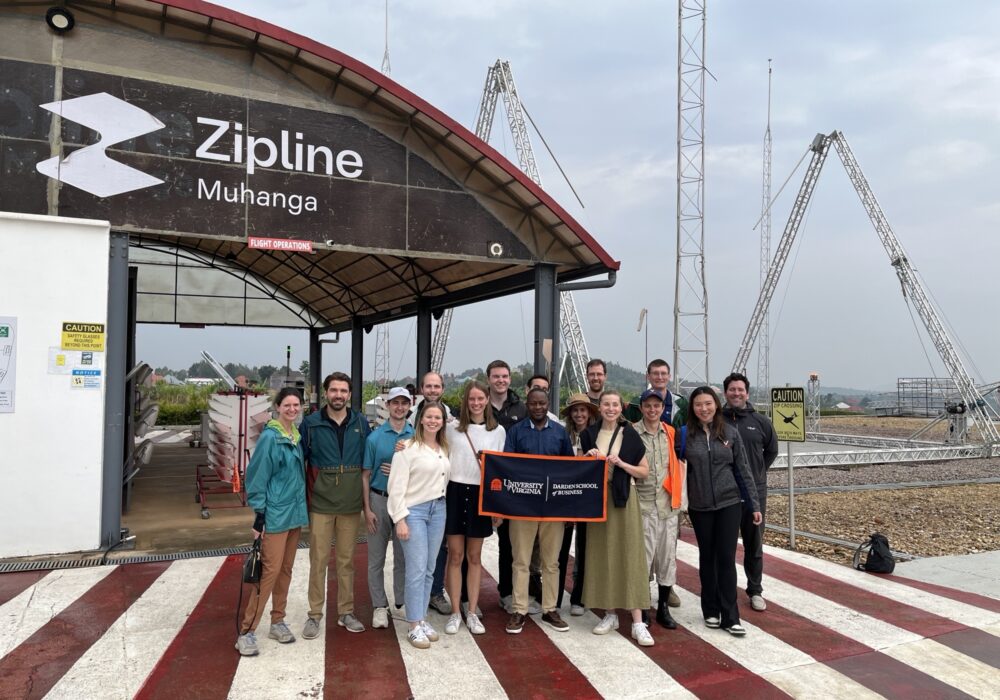
My Growth from the Course
This course has profoundly impacted my perspective on resilience, forgiveness, innovation, and leadership. Witnessing Rwanda’s transformation firsthand taught me that confronting painful histories is essential for healing and growth—not just for nations but also for individuals. The concept of forgiveness as practiced in Rwanda challenged my understanding of justice; it showed me that true reconciliation requires sacrifice but yields immense rewards.
From a professional standpoint, interacting with Rwandan entrepreneurs has inspired me to think more creatively about problem-solving under constraints. The innovative approaches taken by companies like Zipline and One Acre Fund demonstrate that limitations can be catalysts for breakthroughs rather than barriers.
Personally, I have gained a deeper appreciation for cultural humility—the ability to listen, learn, and adapt when engaging with unfamiliar environments. Conversations with Rwandans and kids who openly shared their stories reminded me of the importance of empathy in building meaningful connections.
Rwanda is a country that embodies resilience, innovation, and unity—a model for how societies can overcome adversity through forgiveness and collective action. The insights gained from this course have broadened my understanding of global business practices while inspiring personal growth rooted in empathy and cultural appreciation. As I reflect on my time in Rwanda, I am reminded that true progress stems not only from economic development but also from fostering human connections grounded in shared values and mutual respect.
This journey has been transformative—both intellectually and emotionally—and I am grateful for the opportunity to learn from a nation that continues to inspire hope amidst challenges.
